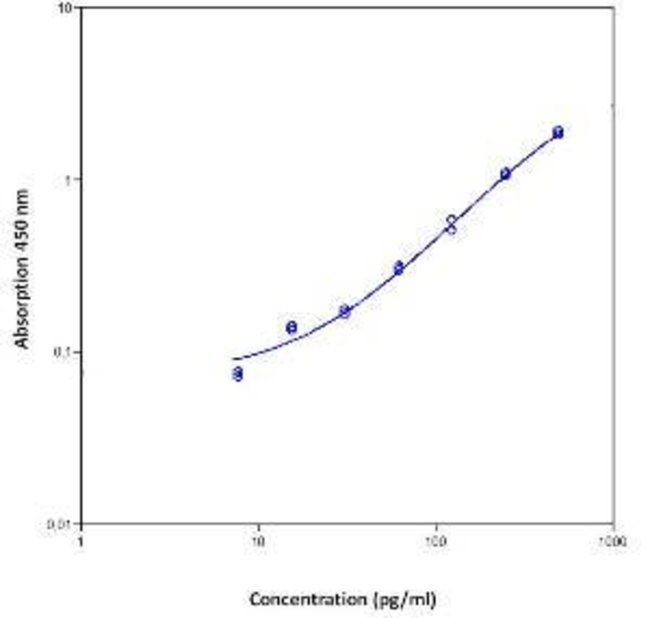TNF alpha Human Instant ELISA Kit, Instant ELISA Kit, Each

|
|
Details:
The Human Tumor Necrosis Factor alpha (Hu TNFα) ELISA quantitates Hu TNFα in human serum, plasma, cell culture supernatants, amniotic fluid, synovial fluid, urine or other body fluids. The assay will exclusively recognize both natural and recombinant Hu TNFα. Principle of the method The Human TNFα solid-phase sandwich ELISA (enzyme-linked immunosorbent assay) is designed to measure the amount of the target bound between a matched antibody pair. A target-specific antibody has been pre-coated in the wells of the supplied microplate. Samples or controls are then added into these wells and bind to the immobilized (capture) antibody. The sandwich is formed by the binding of the second (detector) antibody to the target on a different epitope from the capture antibody. An antibody conjugated with enzyme binds the formed sandwich. After incubation and washing steps to rid the microplate of unbound substances, a substrate solution is added that reacts with the enzyme-antibody-target complex to produce measurable signal. The intensity of this signal is directly proportional to the concentration of target present in the original specimen. Rigorous validation Each manufactured lot of this ELISA kit is quality tested for criteria such as sensitivity, specificity, precision, and lot-to-lot consistency. See manual for more information on validation.Tumor Necrosis Factor is a polypeptide cytokine produced by monocytes and macrophages. It functions as a multipotent modulator of immune response and further acts as a potent pyrogen. TNF-alpha circulates throughout the body responding to stimuli (infectious agents or tissue injury), activating neutrophils, altering the properties of vascular endothelial cells, regulating metabolic activities of other tissues, as well as exhibiting tumoricidal activity by inducing localized blood clotting. TNF-alpha also inhibits lipoprotein lipase activity resulting in cachexia, a physical wasting condition. Activation of B-cells by the Epstein Barr virus can be inhibited by TNF-alpha. Due to its varied actions throughout the immune system, TNF-alpha may play a role in the pathogenesis of many disease states. TNF-alpha production is mediated by the action of lymphokines and endotoxins on the macrophage. Purified monocytes produce TNF-alpha within four hours of stimulation by recombinant IL-2 and there is some in vitro evidence to suggest that TNF-alpha is expressed at high levels and with prolonged kinetics in T cells stimulated by both CD2 and CD28. Secretion of TNF-alpha is enhanced by gamma interferon. TNF then induces or enhances the specific production of Class I MHC antigen, GM-CSF, and IL-1.
Additional Information
| SKU | 1446513 |
|---|---|
| UOM | Each |
| UNSPSC | 41116158 |
| Manufacturer Part Number | BMS223INST |

